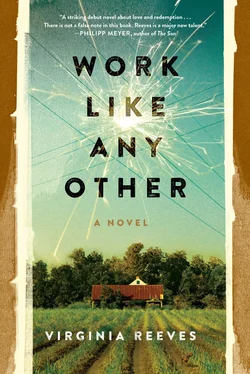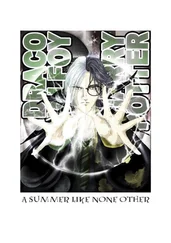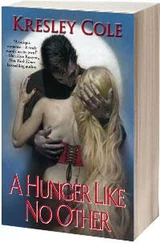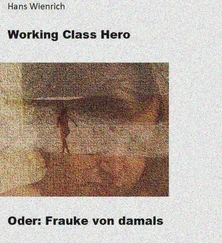Gerald grinned, and Roscoe tousled his son’s hair before walking over to Marie.
“What’s this about?”
“Nothing.” Roscoe placed a hand on her shoulder, kissed her forehead. “It’s nothing.” Roscoe assumed the sheriff was there about the electricity — it was bound to happen sometime — but the offense was small, a negligible siphoning of power in exchange for such great progress. Roscoe saw the farm becoming the forerunner for rural electrification. The State would see their great success and make rural lines a priority.
Marie squeezed his hand, and he squeezed her shoulder, and then he pulled away.
“Finish up your supper. I’ll be back before bedtime.”
Sheriff Eddings stood on the newly painted porch, his hands clasped behind his back. He had the same bad scalp he’d always had, the same dander on his shoulders. His nostrils were plugged with the same brown hair, but the boil on his left temple had grown since Roscoe had last seen him.
“Roscoe.”
“Sheriff.”
He took hold of Roscoe’s arm, just above the elbow, firmly, the way Marie’s father had at their wedding. “You know why I’m here?”
“Imagine it’s about the electricity we have running in.”
“That’s the start of it.”
“It’s so little we’re taking, Sheriff.” They were walking down the steps. “I can prove how little. We can easily pay it back.”
“It’s more than the electricity, Roscoe.”
“How’s that?”
They reached the drive and the sheriff’s new car. The man’s grip shifted and he reached for his handcuffs. “Would you put your hands out front for me?”
“Sheriff.”
“I’m sorry, Ross, but I have to cuff you. No way around it.”
Roscoe held his hands out. Even though Sheriff Eddings placed them loosely, the metal felt dense and tight round Roscoe’s wrists.
“Go ahead and sit up front.” Eddings opened the door, and Roscoe climbed in, his hands awkward and heavy. Eddings stood still, holding the door like a servant. “It’s a goddamn shame,” he said, looking at his feet.
“What am I missing, Sheriff?”
The man shook his head. “I’ll give you the whole thing on our ride down to Montgomery.”
“Not Rockford?” The county jail was in Rockford.
“It’s out of my hands.”
Roscoe watched the sheriff walk round the hood of the car. He took slow steps, worry cracking his forehead into deep lines. What piece of Roscoe’s work could cause such deep concern? If a transformer had blown, every light in the house would’ve gone out. They’d have been eating under a dark chandelier, the dim shadows of evening getting the better of the room.
The sheriff opened his door and heaved himself into the vehicle. He drove them down the lane that connected Marie’s property to Old Hissup Road, and they continued all the way to 22 before the sheriff spoke.
“Wish to hell it weren’t me had to tell you this. And you’ll be hearing it all again from the State boys soon as we arrive, but I figure you should have yourself prepared. See, I didn’t want to cause too much commotion back there with Marie and your boy, and that’s why I asked that they let me take you in myself. You’re under arrest, Roscoe. This ain’t about me asking you a few questions. And it ain’t about the power, either. It is at its base, of course, but it’s much more than that. You’d be right about it being a small thing should it’ve just been the taking of some electricity, but you’re being charged with a man’s death. That’s the sum of it. Some fellow working for the power company was checking lines, and he came across your handiwork and electrocuted himself. I saw the poor bastard in person. Worst death I’ve witnessed in my life, Roscoe. Ugly as all hell.”
Roscoe forced himself to meet the sheriff’s eyes. He lifted his shackled hands, holding them chest level, unsure of his intentions. Maybe he was going to set his palms together, readying himself for a plea. Maybe he was making to form fists to pound on the dash of the car. His hands might be leaning toward the door handle, pulling it, that latch letting go, and then shifting to a push that pitched his whole body toward the roadway. He saw himself hit and bounce and roll, limbs loose and shuffling, rocks taking bites out of his skin. He saw himself dead there on the ground, half on the paving and half in the rough grasses along the side, the sheriff pressing hard on the brakes, jumping out before the car fully stopped, then running toward the mess that had been Roscoe T Martin.
“Now, I want you to stay calm, Ross. I got one more thing I’ve got to tell you. Set those hands down, son. You just sit there, calmlike.”
Roscoe set his hands back in the gully of his legs. His shoulders were starting to ache.
“Wilson’s already been taken in. He was right there when it happened.”
Roscoe raised his hands again.
“Put those hands down, son.”
He put them down. “Mind if I have a cigarette, Sheriff?”
“Not if you hand me one, too.”
The cuffs made it difficult for Roscoe to fish his cigarettes from the chest pocket of his shirt, and more difficult still to handle the box. He ended up dumping its whole contents into his lap. Only six cigarettes were left, and he handed one to Eddings, tucked another in his mouth, then struck a match on the floorboards. He passed the flame to Eddings and cracked the vent window on his side.
“Wilson was just checking the fence line,” Roscoe said. “He wasn’t involved with the electricity.”
“He was up on the ladder, Ross, getting the juice flowing again.”
Then Wilson had been there to flip those levers back to on. That was why they hadn’t noticed the short back at the house — the lights off during the day, and the thresher not in use. It wasn’t Wilson’s job to check the lines, not his job to clean up anything, but he did those jobs all the same. Roscoe breathed in his smoke, both his hands coming to retrieve the cigarette to knock its ashes outside, the left hand dragging along like something paralyzed.
“Wilson’s a farmer,” Roscoe said. “He’s been working that land since Marie was a girl. He doesn’t know a damn thing about electricity.”
“But you do, son. And you likely needed someone’s help with a project that big. The way I see it, it was either Wilson or Marie. You want me to turn around? Go get your wife?”
Roscoe turned his head to watch the woods blur by, the dogwoods standing out yellow against the bark of the tall loblollies. He thought the brown-leafed hardwoods were black oak, but they could’ve been chestnut oak, too. Those two were hard to tell apart in the fall. All the woods’ undergrowth thinned out in these months — the beautyberry’s leafless branches decorated with clumps of purple, the red buckeye left to twigs. In his time walking Marie’s land, he’d found himself noticing the various sorts of shrubs and trees. An identification guide was in the library at the house, and Roscoe had started cutting clippings during his walks, bringing them back to match against the illustrations in the book. He’d been surprised at how many different species grew on Marie’s land. Their memorization came easy to him, and he’d started telling Marie their names and habits the way she told him about birds.
Since the power had gone in, they’d started walking together in the evenings like Moa and Wilson.
“Summersweet clethra,” he’d tell her. “See its spiky flowers? They’ll all be gone in another week.”
“Dwarf fothergilla. Those little white flowers will only last through the end of the month. It’ll turn bright red in the fall.”
Marie, Roscoe thought, there in Sheriff Eddings’s car. I did this for you .
Читать дальше












